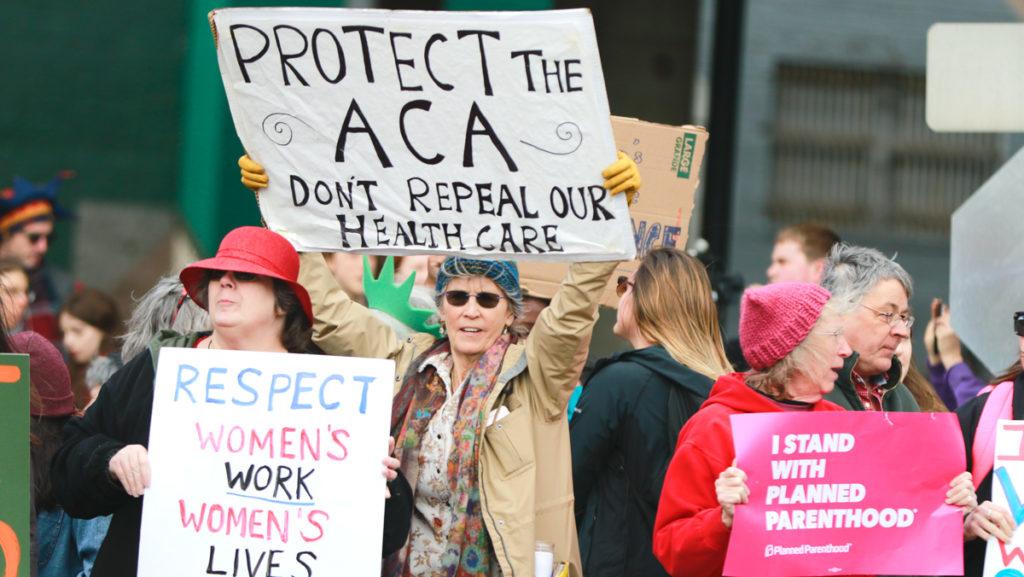In January 2018, we celebrated the 45th anniversary of Roe v. Wade, the case which ruled first-trimester abortions legal in the United States. This should mean 45 years of strides for women’s reproductive rights. Forty-five years of safe healthcare for women of all economic backgrounds. Forty-five years of supporting a woman’s right to decide what goes on inside her own body. Certainly we did not anticipate that 45 years later we would still face resistance from the White House. As a college student and woman who has witnessed the devastating effects of being denied medication, I believe that everyone on our campus community must understand how dramatically new legislation may affect us and the women we love.
In late 2017, the Trump administration began unraveling the Affordable Care Act put in place during the Obama administration. The act required employers to cover FDA-approved methods of birth control for female employees regardless of personal beliefs. The newer regulations by the Trump administration make it so that employers and insurers are no longer required to cover birth control if they have religious or moral objections to it. The Affordable Care Act reduced the percentage of women who had to pay out of pocket for contraceptive care from 20 to 4 percent. In repealing this, we will see a substantial increase in women having to scrape up this money themselves. This puts lower income households in a horrible place, possibly cutting them off from this healthcare option altogether.
I have seen how this wall between affordable healthcare and lower incomes makes living a healthy life nearly impossible. I recently witnessed a good friend have to forego birth control options because the costs were too high. After problems with the New York Medicaid program, she had to pay full price for her birth control pills, coming to roughly $70 per month. As a college student struggling to cover tuition, rent, groceries and all of the other costs we must consider daily, there was simply no room for an additional $70 every month. She spent weeks trying to weigh other affordable options, all the while without any form of birth control. A medication that many consider a right for women in the United States can become impossible to crunch into a budget for many families.
As students on Ithaca College’s campus, we should be aware of how pressing this issue is to our community. Women our age living in the culture that we are a part of rely on contraceptive measures to keep them safe. According to a 2010 survey of college students by the American College Health Association, of respondents who said they use contraceptives, 60 percent of students said they used the pill, 4 percent the Nuvaring, 3 percent the birth control shot and 1 percent the patch. Whether you are male, female, religious or atheistic, you likely know and care about a woman on campus who relies on some method of birth control.
Though this topic is tainted with political biases, the core of the problem is the fact that women are slowly losing foothold in the fight to fairly control their own bodies. If anyone but the woman whose body is in question is given the power to decide how she will protect it, there is a problem in our healthcare system. The legislation passed by the Trump administration is one step back in a fight that has been going on since before even Roe v. Wade. We cannot give up this fight now. I encourage everyone to share their voice in regard to this problem. Calling your elected officials about the topic is a direct way to support the women in your life, as is
donating to a reputable organization such as Planned Parenthood. We must continue moving forward in the fight for women’s reproductive rights even in the face of adversity.














